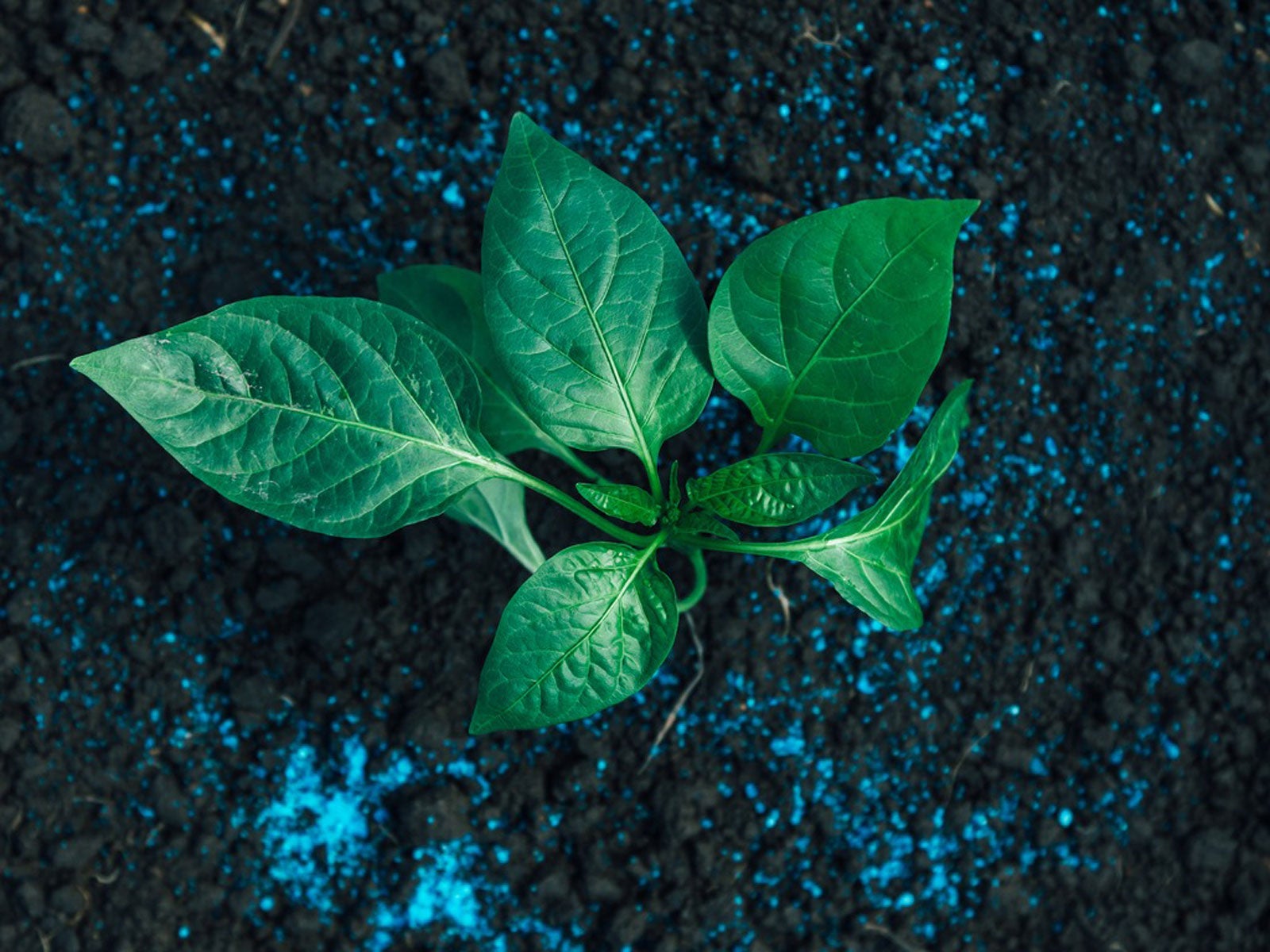Best Fertilizers for Peppers: A Comprehensive Guide to Increase Your Harvest
Best Fertilizers for Peppers: A Comprehensive Guide to Increase Your Harvest
Blog Article
Organic Vs. Synthetic Fertilizers: Which Is Best for Supporting Healthy Pepper Plants?
In the world of nurturing healthy pepper plants, the choice between synthetic and natural fertilizers stands as an essential choice with far-reaching ramifications. While both alternatives objective to provide important nutrients to sustain plant development, the nuances of their influence on the soil, plant wellness, and the atmosphere trigger a debate that echoes throughout the horticulture area. Understanding the unique benefits and prospective risks of each plant food kind is important for pepper growers looking for to optimize their yields while preserving an eco-conscious and lasting strategy.
Advantages of Organic Plant Foods
Organic fertilizers use a lasting and environmentally-friendly method to nourishing pepper plants, supplying vital nutrients without making use of synthetic chemicals. These all-natural plant foods are obtained from natural sources such as garden compost, manure, bone meal, and seaweed, promoting dirt health and biodiversity. Unlike artificial plant foods, natural options release nutrients slowly, making certain a well balanced and stable supply for pepper plants to thrive.
One substantial advantage of organic plant foods is their ability to improve dirt structure and water retention. By enhancing soil health and wellness, organic fertilizers advertise helpful microbial activity, which helps in nutrient uptake by pepper plants. Additionally, natural fertilizers minimize the threat of chemical run-off, protecting water sources from air pollution and safeguarding the atmosphere.
Furthermore, natural plant foods add to lasting dirt fertility by promoting the growth of valuable dirt microorganisms. These organisms aid break down raw material, launching nutrients in a form that is easily available to pepper plants. best fertilizers for peppers. By fostering a healthy and balanced dirt community, natural plant foods sustain lasting pepper cultivation methods that profit both plants and the atmosphere
Disadvantages of Synthetic Plant Foods
Synthetic fertilizers, in comparison to their natural counterparts, position different disadvantages when used to nurture pepper plants, impacting both plant wellness and ecological sustainability. One significant disadvantage of artificial fertilizers is their tendency to seep nutrients from the soil quickly. This quick leaching can cause nutrition discrepancies in the soil, creating plants to experience from poisonings or deficiencies. In addition, synthetic plant foods can damage advantageous soil organisms, such as earthworms and beneficial germs, interfering with the dirt community's equilibrium.
In addition, the overuse of artificial plant foods can add to water air pollution. Excess fertilizers not absorbed by plants can remove right into water bodies, leading to eutrophication, where algae flowers deplete oxygen degrees in the water, harming water life. Additionally, artificial fertilizers are typically stemmed from non-renewable resources, such as fossil gas, adding to carbon exhausts and environmental deterioration during their production.
Nutrient Absorption Comparison
When comparing organic and synthetic plant foods in terms of nutrient absorption, organic plant foods have the benefit of offering a more well balanced and slow-release resource of nutrients. Organic fertilizers consist of a selection of macro and micronutrients that are not just useful for the plants yet additionally promote healthy and balanced soil microbial task, which helps in nutrient uptake.
In addition, organic fertilizers boost dirt framework and water retention ability, enabling pepper plants to accessibility nutrients extra successfully. This enhanced dirt top quality facilitates origin growth, making it possible for far better nutrient absorption. Synthetic fertilizers, although initially improving plant growth because of their high nutrient concentrations, may prevent long-term nutrient absorption by derogatory dirt health with time.
Ecological Impact Factors To Consider

On the other hand, artificial plant foods, although often more immediately offered and concentrated to plants, can have harmful impacts on the setting otherwise used correctly (best fertilizers for peppers). Their production requires high energy inputs, causing greenhouse gas exhausts and contributing to climate modification. click now The runoff of excess artificial fertilizers can contaminate water sources, leading to eutrophication and hurting aquatic ecological communities.
Best Fertilizer Practices for Peppers
To attain this, it is vital to adhere to best fertilizer methods tailored to the particular requirements of pepper plants. One crucial practice is to carry out a dirt examination prior to applying any plant foods.
An additional important method is to feed pepper plants at the correct time. Normally, peppers profit from obtaining plant food at planting and after that once more when they begin to flower. Over-fertilizing can result in nutrient imbalances and damage the plants, so it is crucial to adhere to recommended application rates.
Additionally, choosing a well balanced fertilizer with an NPK ratio that suits pepper plants' demands is basic. Organic fertilizers, such as garden compost or manure, can be excellent choices as they release nutrients gradually and improve dirt framework gradually. However, artificial plant foods can supply a fast nutrient boost when needed. Ultimately, integrating natural and synthetic plant foods carefully can aid support healthy pepper plants while decreasing ecological impact.
Final Thought

Organic plant foods use a sustainable and environmentally-friendly method to nourishing pepper plants, supplying essential nutrients without the usage of synthetic chemicals. Unlike artificial plant foods, natural options launch nutrients gradually, guaranteeing a well balanced and consistent supply for pepper plants to grow.
Synthetic plant foods, in comparison to their organic equivalents, posture different drawbacks when utilized to nourish pepper plants, influencing both plant health and wellness and ecological sustainability. When comparing natural and artificial plant foods in terms of nutrient absorption, natural fertilizers have the advantage of giving an extra balanced and slow-release resource of nutrients.Furthermore, organic fertilizers improve soil structure and water retention capacity, allowing pepper plants to accessibility nutrients a lot more effectively.
Report this page